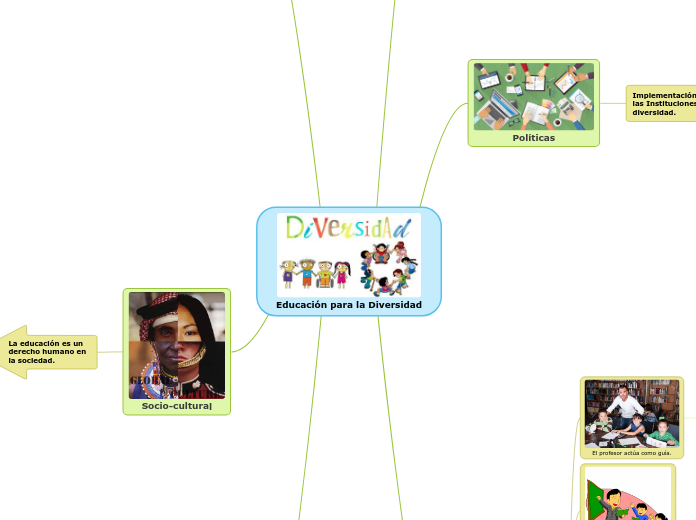av Santiago Garcia för 5 årar sedan
1082
Educación para la Diversidad

av Santiago Garcia för 5 årar sedan
1082

Mer av detta
Global warming is the ongoing rise of the average temperature of the Earth's climate system which has various negative effects.
A través de ella:
Se construyen nuevos conocimientos en:
Los alumnos
Los docentes
Overpopulation creates an increased demand for energy as well as having negative effects on our environment and ecosystems.
Over-cultivation is the practice of excessive farming on a piece of land to the point of degradation of the soil as well as the land itself.
Sociedades solidarias
Sociedades justas
Median el proceso de aprendizaje
Culturas
Contacto cultural es entendido como:
Aprendizaje significativo
Oportunidad
Enriquecimiento
Todas deben ser tenidas en cuenta de la misma forma.
Todas deben ser respetadas.
Desarrollo de talentos y habilidades
Genera actores efectivos en la sociedad
Derecho a aprender
Climate change is likely to both increase electricity demand for cooling in the summer and decrease electricity, natural gas, heating oil, and wood demand for heating in the winter.
How will climate change affect the production of clean energy?
e.g.: solar, wind, water
El sujeto construye su identidad propia y tiene derecho a ella.
Respeto a todos como son
Toma de conciencia
Valor de la igualdad de la cultura
Sin jerarquías
Costumbres
Personalidad
Biológicas
Necesidades
Healthy ecosystems and rich biodiversity are fundamental to life on our planet.
Even small changes in average temperatures can have a significant effect upon ecosystems.
Climate change will affect mountain and lowland ecosystems, the diversity of wildlife, and the distribution of freshwater.
e.g.: forest fires
Económicas
Culturales
Sociales
Climate change is supported by scientific evidence.
Write down the consequences caused by the melting of the ice-caps and how it will affect our lives and the environment in the future.
e.g.: decreasing of polar bear habitat
Implica
Aprender juntos en el aula regular.
Aceptación de los estudiantes, a pesar de su condición personal.
Enseñanza ajustada a sus:
Potencialidades
Intereses
Necesidades educativas especiales
Discapacidades